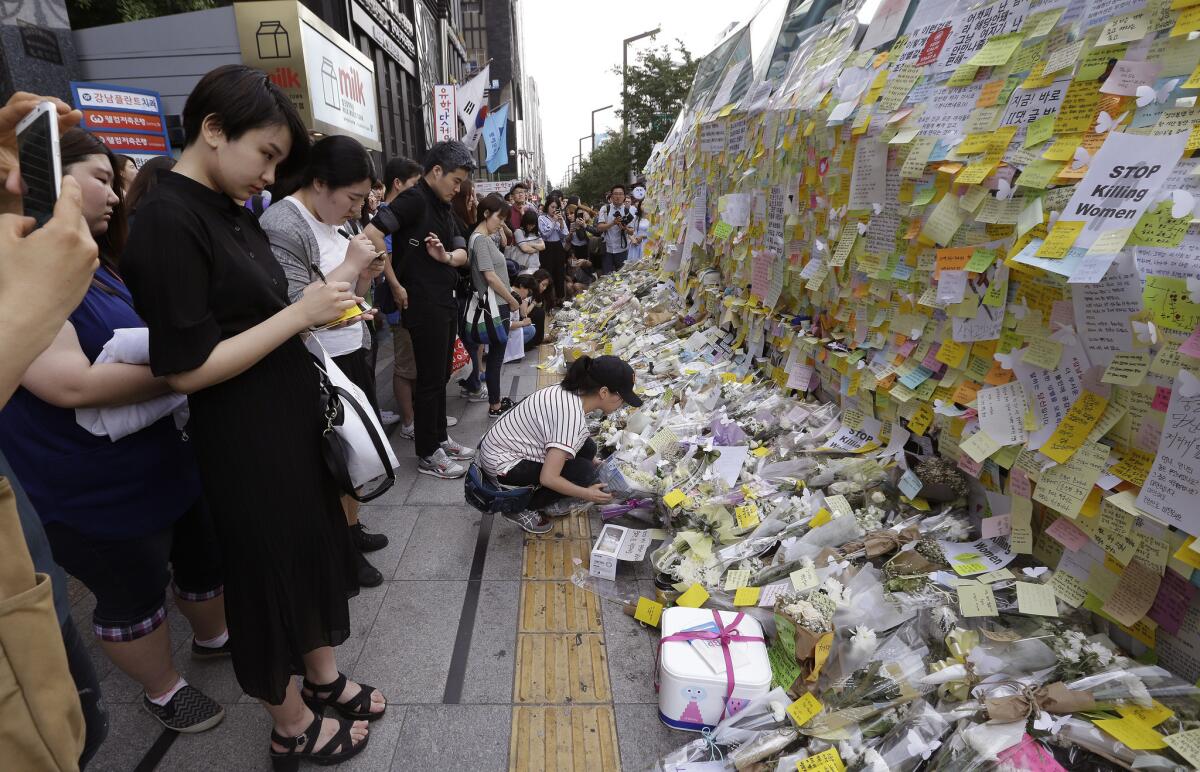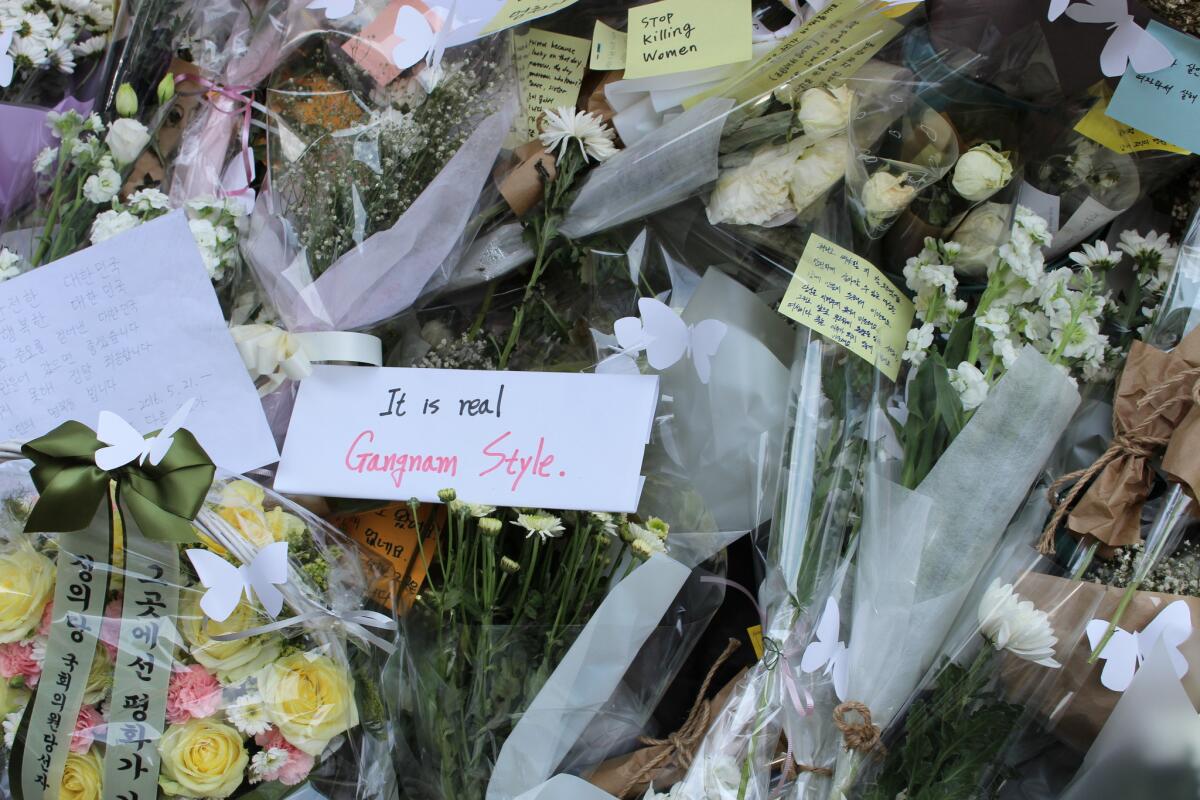A woman’s slaying in Seoul’s tony Gangnam district stirs emotions in South Korea

Reporting from Seoul — At the subway station exit, Lee Je-hee knelt down, weeping, while writing a message to a person she never knew. The normally noisy street in the South Korean capital was quiet enough that passersby could hear her sniffles.
She placed a carnation on the ground, then affixed a bright yellow sticky note on the wall among countless others. “Rest in peace” it read, and asked, “Why is nighttime dangerous for Korean women?”
The 21-year-old student was among thousands of South Koreans who joined in an outpouring of sadness and rage Saturday over the stabbing death of a 23-year-old woman in a public washroom in Gangnam, a bustling, high-rent district of Seoul. The area was made famous in 2012 by singer Psy’s smash hit “Gangnam Style.”
See more of our top stories on Facebook >>
Tuesday’s slaying took place when the victim left a karaoke bar to use the restroom in a corridor of a building near the subway station.
Surveillance camera footage indicated that the perpetrator had waited for more than an hour in the unisex facility. During that time, several men came and went from the restroom without being harmed.

The 34-year-old suspect told police after his arrest that he had chosen a woman as his victim because he had felt “ignored and belittled” by women his whole life.
Police said the suspect had no fixed address and supported himself by working part-time as a waiter. He had been hospitalized in the past for mental health problems, including schizophrenia, police said.
The slaying drew an emotional response from many young South Korean women, who have flocked to this busy subway exit to leave condolence messages.
“Of course, there have been plenty of murders before,” said Lee, a culinary arts student. “But this case was different. This time a woman was killed just because she was a woman.”
NEWSLETTER: Get the day’s top headlines from Times Editor Davan Maharaj >>
There have been similar outpourings at subway station exits in other major cities across South Korea, and women have used the hashtag #survived on social media to share experiences of violence.
Violent crime is not widespread in South Korea, though government statistics show that in recent years there has been an uptick in reported cases of sexual violence.
A 2015 U.S. State Department report gave the country a “low” crime rating. But South Korea scores poorly on most measures of gender equality, and women are underrepresented in the top ranks of government and business.
The country ranked 115th out of 145 in the World Economic Forum’s Global Gender Gap Report last year.
On Saturday afternoon, temperatures rose and the scene around the subway exit became tense. Some “men’s rights” activists came to protest at the memorial site, and shouting matches intermittently broke out.
The activists argued that men’s lives are more dangerous than women’s in South Korea due to their required military service. Ilbe, a far-right group, sent a mocking funeral wreath to the site, affixed with the photographs of sailors who died in the sinking of a South Korean warship in 2010.
But some men came to show support. One stood holding a placard that read, “Woman Lives Matter.”
Two young women brought him a cold bottle of water purchased from a nearby convenience store. He thanked them, accepting the bottle with two hands, a customary Korean gesture of respect.
As the sun began to set, the mourning and crying continued. After adding a note to the subway exit’s wall, Koo Min-hye said she hasn’t felt safe living in Seoul since hearing of the killing.
“My whole life I’d heard warnings from my parents, like don’t stay out late, don’t walk alone. But none of them felt real until now,” said Koo, a 23-year-old college student.
She now looks over her shoulder much more frequently when moving through the city.
“Now I realize that something like that could actually happen to me,” she said, glancing at the dozens of young women gathered around her.
“It could happen to any of us.”
Borowiec is a special correspondent.
ALSO
The spy who wasn’t a spy: A tale of two Koreas
Obama considers expanding weapons sales to Vietnam
North Korea is building something other than nukes: architecture with some zing
More to Read
Sign up for Essential California
The most important California stories and recommendations in your inbox every morning.
You may occasionally receive promotional content from the Los Angeles Times.









